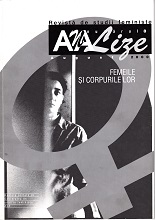
We kindly inform you that, as long as the subject affiliation of our 300.000+ articles is in progress, you might get unsufficient or no results on your third level or second level search. In this case, please broaden your search criteria.



Women are always either raped or possible victims of a rape. The society we are living in is grounded on a 'rape culture' that states and maintains male domination over woman's body. Physical and symbolical violence against women constitutes a cultural mechanism that enforces the patriarchal power relations between men and women. Women go through a 'rape socialization process' in everyday life: they have to face what might be called 'mini-rapes' - for example, the pinch in the crowded bus, or the stare of a man looking at her bust during a conversation. Moreover, the threatening of rape affects the relationship that women settle with their own body: thus, their body is not anymore a space of individual autonomy, but a 'territory' that needs to be defended against the invasion of masculine supremacy.
More...
In various cultural contexts womens' socialization is centered on their body, and particularly on fecundity and reproduction. The concept of the body not as an experience in itself, but as a means represents the illusion of the classical western philosophy. Therefore, it is not necessary to reassess the meaning of the body in defining the individual's identity and to reconsider the bodily experiences of women, along with a feminine identity. In the author's opinion, there is a fusion between body and soul that is specific to women because cultures construct and reinforce this. This problem makes necessary an anthropological approach over the contemporary feminine spirituality, which is represented by the religious praxis and discourses of the everyday life's women. Three main aspects were in the author's attention: the purification, the flagellation and the importance of food. She analysis the discourse and practices of few urban women and argues on the importance of the body within them.
More...


Romania. A place where young women get married, have children and end up being abused by their husbands, fathers of their children. A place where magazines teach men how to beat their female partners and get away with it. Is that ethically correct? What does the media and the public opinion think about it? Whatever the answers, the fact is that Romanian women continue to ignore the dangers threatening them into their own homes.
More...
Why beauty as a subject for theological reflection? Precisely because there is so much destruction, so much wanton disregard of life and creation and because there is a deep connection between the destruction of nature, others and self; precisely because beauty has become commodified and constructed to serve the interests of a dominant patriarchal culture; we need to restore a sense of reverence for the fragile order of the intricate web of life. Female beauty has centered around the hair, the breasts, the feet, and the hands for many centuries. Womens' beauty in patriarchal cultures is a complex construct that binds together <physical beauty>, desire for relationship / friendship / sexuality / love, but also cultural acceptance, group belonging and the economic basis of womens' lives in marriage but also in the workplace. This explains why women comply and complied to oftentimes excruciating ordeals in order to enhance their beauty. The essential way of experiencing beauty has to do with seeing, with attentiveness, with the posture of beholding. Redeeming beauty means therefore that life has meaning in itself. The promise and praxis of ilfe: Can we redeem the dream of a sharing community that experiences abundant life and that Jesus called <the kingdom of God>?
More...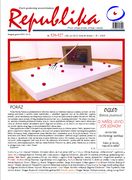
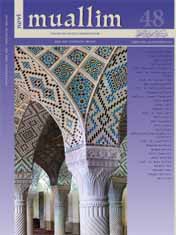
The text offers a short comparative insight into participation of religious women in two largest religious institutions in Germany. Catholic and Protestant churches in Germany show that active participation of women in the works of religious community is essential. The Catholic Church employs 20. 000 of women, that is nuns, whereas the Protestant Church in its legislative, executive, administrative and consulting bodies gives equal rights of membership. The intention of this article is to initiate the movement that would bring about employment and participation of a larger number of women within the main bodies of the Islamic Community of Bosnia and Herzegovina.
More...
The article presents a historical review of the position of women in general, and the Muslim woman in particular at the beginning of the 20th century. It is also a reminder about the research work published in 1976 done by Husein ef. Djozo, who in both written and spoken word often emphasized the need for education of women, he stressed that woman needs to have knowledge of Islamic studies and Islamic practice, but she also has a wide open door for gaining knowledge in other fields like politics, social or economic studies etc. The author of this article brings statistic data that shows rather significant number of women who got their degree from the institutions of the Islamic Community of Bosnia and Herzegovina, but it also points out to the negligence on the part of the Islamic Community towards the female personnel that it produces.
More...
The author of the article with grief asserts that despite the fact that God by the gifts of the message of the Qur’an revealed Himself likewise to men and women, for many years, rather centuries on the world’s stage we are witnessing only “Islam of males”, where Muslim women are enslaved and are not offered the role of an equal partner. The author here appeals to the Muslim women to speak up about their issues, to interpret their faith, to interpret themselves in their faith, thus the Muslim women elite could be formed to articulate the position of women and manage fatwa in their own field and thus abolish the practice of having a spokesMAN!
More...
The author of this article reminds us that all groundbreaking and important events of sacred and profane history, by the Supreme providence, took place as a result of and as an expression of masculine-feminine and femininemasculine essential but not formal bonds and complementarities. Since the time of pre-existence (al-Azal), each historical phase of time carried the burden of its own existence, but the great rulers consulted their women and thus were granted the success. Contemporary world is very pluralistic, open for activity, inclusiveness and participation. The very spirit of this time is contained in politics of fear and infantilization of public sphere. These are two evident signs that the knightly- masculine form of the world is at its last gasp. This also implies that it is now the time for women to take their part in spheres of life other than just the kitchen. However, in doing this we must be watchful as not to abandon the bases.
More...
The article relates about the necessity of implementing an institutional discourse about women in “living Islam”. Positive social changes and fascinating results were evident every time this necessity was understood as an imperative. Certainly, the requirement for such change is the existence of real women potential and competence. Not for the sake of quotas and percentages of course. The message from the ceremony of Nobel Peace Prize Award in Stockholm, where three ladies were given the awards and one of them was a Muslim Tawakul Karman from Yemen, is that the world will not achieve lasting peace and democracy for as long as women are not given the same opportunities as men. These are in fact the principles of Islam expressed in the Western manner and at the same time they represent a strong appeal to the Muslim authorities to take some action in this regard. But it is at the same time, an appeal to us living in Bosnia and Herzegovina, to us in the Islamic Community of BiH to consider a new innovative approach towards women; in itself it is a great challenge as it involves other issues as well that can be solved along the way.
More...
The article represents a reminder about continuous discourses about women in general and Muslim women in particular. The author here strives to find answers to two issues that at the same time significantly reflect Muslim’s and our Islamic Community’s perception of the position of women. In what way do we as a community appreciate, support, promote and utilise those benefits and knowledge that these women achieve through education? And why in our community the rights of women are directly linked with men’s mercy or to the lack of it therein? Primarily, there is a view which states that a Muslim woman is allowed to and encouraged to work and contribute or to be socially active, but under the condition that she performs all the possible responsibilities towards her family and her house. Such approach demands of those women, who desire to be active in their society, to become “superwomen” who would have to be able to perform double duties and actually do two full-time jobs simultaneously. In the other approach again, Muslims in principle support work and engagement of women as well as their presence and active participation in public sphere. However, in reality they do not exercise such support when their wives, daughters, sisters etc. are concerned. They agree that women should partake in social life of the community, but that’s only in principle and those should be some other women or women in general. The will to make some changes in the traditional men’s position, as would involve additional help at home, distribution of the housework that would bring about the balance of private and public duties and responsibilities of both spouses, is very rare.
More...
The author here evokes the place and the role of women throughout the history of Islam since the time of the Messenger and the first centuries of Islam when the Muslim community represented the true umma, the righteous community of it’s both male and female members, under the rule of Medinite democracy, when she could be simultaneously a mother and a pedagogue as well as a scientist, an army leader, a counsellor or a ruler or anything else that was defined in the community as private or public office or service, when no one had an authority to deprive her of her right to public speech, or of her freedom, dignity, independence, or her right to have a choice, or her right to education - the times when even the throne was not beyond her reach, to the times of the Muslim political despotism when she became deprived of all these rights, banished from the public sphere, the freedom of public speech was taken away from her, her freedom of movement was conditioned and all of these took place namely in the very cradle of Islam. Today’s women of Islam, as compared to women who enjoy the fruits of Western democracies, regardless of imperfections of those democracies, are deprived to such an extent, that they simply should not, moreover must not hesitate to use all the available means in order to recover her dignity and the rights that Islam grants her. The author hopes that throughout the desolation of contemporary Muslim despotisms the scent of “the spring” of irreplaceable Medinian democracy, to which modern Muslim societies nolens volens have to and must retrieve, would someday spread afresh.
More...
The author attempts to find an answer to the question of why the Islamic Community does not have defined strategies for bringing about a larger degree of participation of women in the Community and for utilising their potentials in a way in which the Community would benefit. It is essential that the Islamic Community defines a strategy for making the best use of those potentials and competences of the female part of the Community. A Muslim woman of our Community aspires to act; she needs to be a part of the jamat, but not as a passive and silent observer of the events but as an active participant and contributor in those events. Defining a strategy for involving women in the activities of the Islamic Community represents an essential step in the way of realising a new atmosphere and a new spirit in the pores of the Community that has for years been considered essentially a male Community. In this light the author proposes the first steps that are to be taken towards defining such a strategy.
More...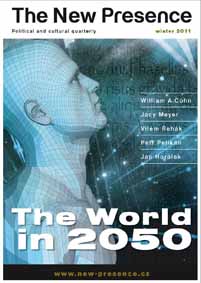
Since the fall of Communism gays and lesbians in the former East Block have struggled with varying levels of success to realize gay pride demonstrations, such as are common in Berlin, Paris or London. In Poland, Czech Republic, Hungary and Bulgaria Pride demonstrations have been met with intolerance and often, outright violence. However, nowhere – perhaps with the exception of Russia – has this been more extreme than in Serbia and in the countries of the former Yugoslavia.
More...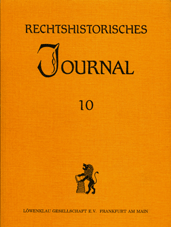
The original lecture, "Zur Frauenfrage", was delivered last summer at the University of Munich, a further one, "God or Goddess and Other Problems of Feminism in the Bible and Talmud", in January at the University of Judaism, Los Angeles.
More...
the author summarizes the role of women in the post-war history of the trade unions all over Central and Eastern Europe and how especially after the end of the communist regimes in these countries the strength of trade unions basically relies on the role of women within the unions.
More...